Policy brief: Front-of-package warning labels give consumers the freedom to choose healthy
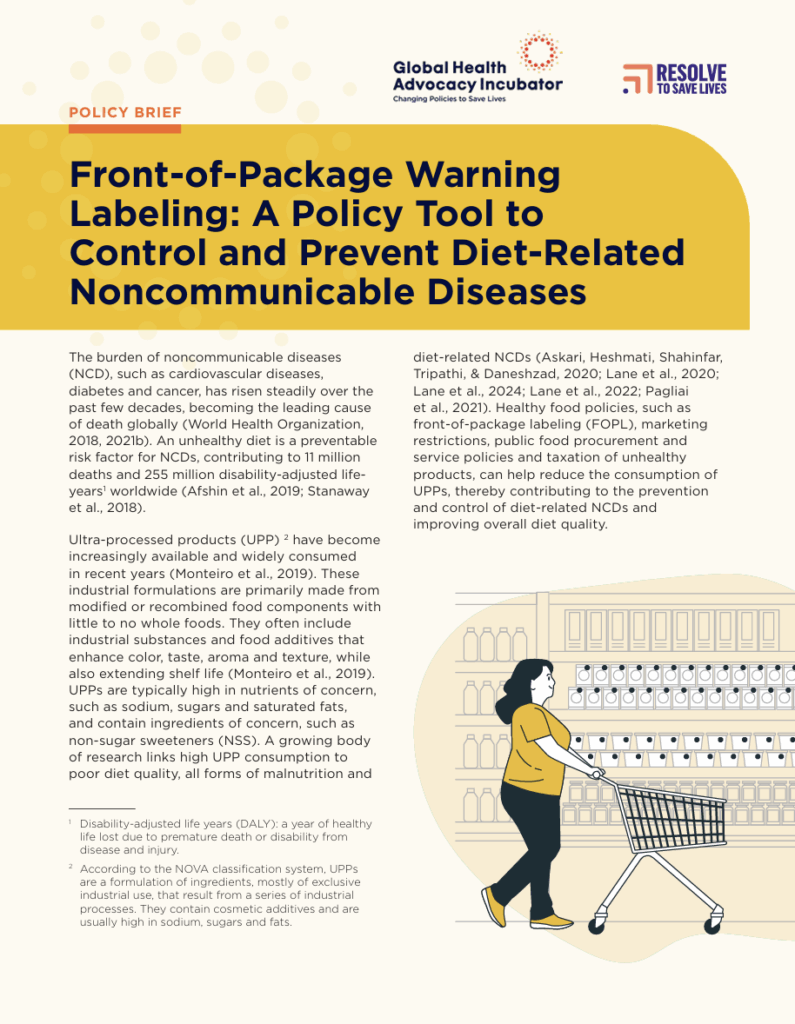
Apr 30, 2025 This policy brief developed by Global Health Advocacy Incubator and Resolve to Save Lives highlights the critical role of mandatory front-of-package warning labeling (FOPL or FOPWL) in combating diet-related noncommunicable diseases (NCDs) such as diabetes, cardiovascular diseases, and obesity and saving millions in health care costs. Warning labels empower consumers with easy-to-understand nutrition […]
Using nutrient profile models to underpin key nutrition interventions
New RTSL guide explores how to use nutrient profile models to rank food based on nutritional composition and provide the scientific foundation for healthy and comprehensive nutrition policies.
9 million lives saved and counting
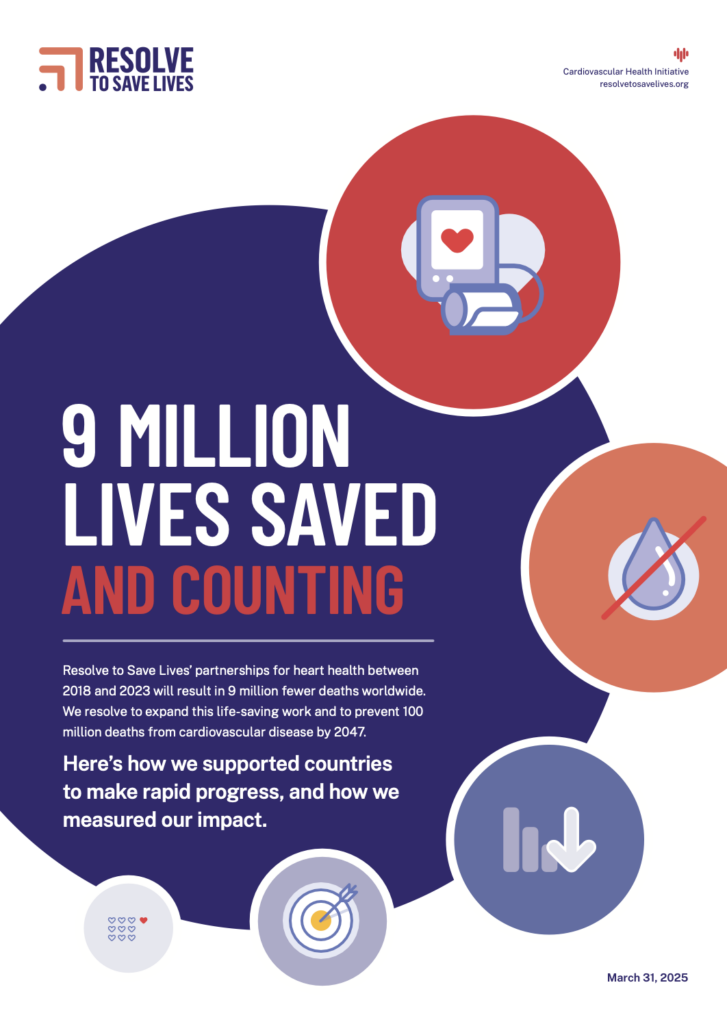
Resolve to Save Lives’ partnerships for heart health between 2018 and 2023 will result in 9 million fewer deaths worldwide. Here’s how we supported countries to make rapid progress, and how we measured our impact.
Pakistan protects more than 240 million people by eliminating harmful trans fat
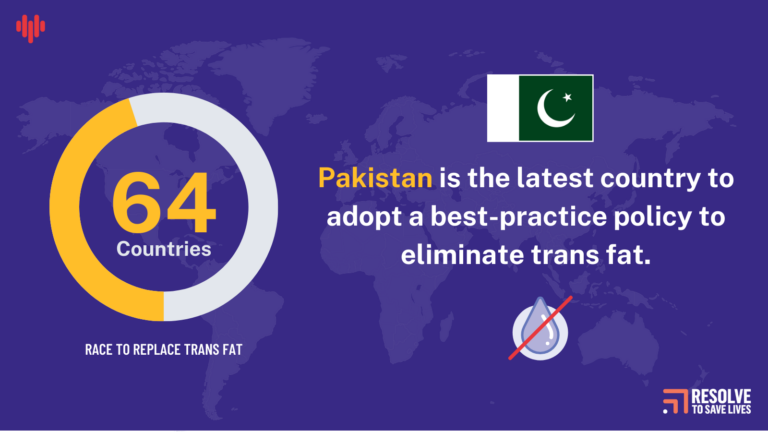
Pakistan and its 240 million inhabitants join the global movement toward a trans fat-free world.
Nigeria launches National Sodium Reduction Guideline
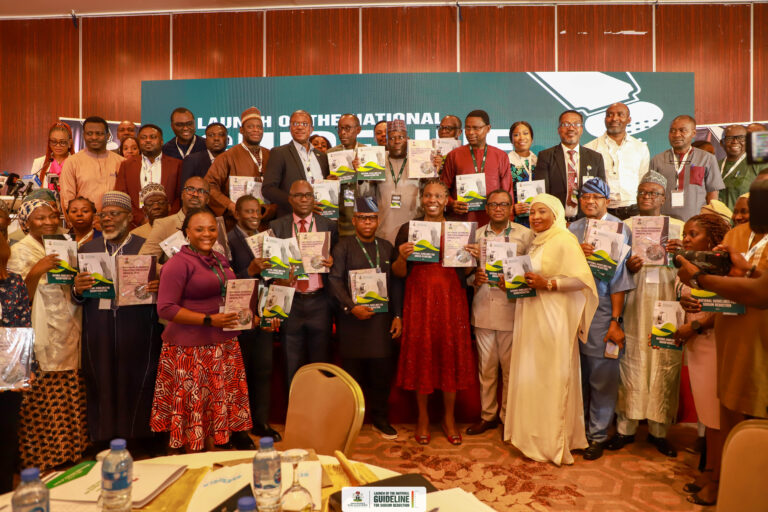
Evidence-based interventions include mandatory limits on sodium content in processed and packaged foods.
Guide to developing nutrition standards

Nutrition standards guide developed by Resolve to Save Lives that governments can use to ensure food and beverages purchased, served and/or sold in government settings such as schools, public hospitals, childcare or child development facilities, correctional facilities and government workplaces are healthy and low in sodium.
Resolve to Save Lives at EPI | Lifestyle Scientific Sessions 2025

High blood pressure too often goes unnoticed. Watch the American Heart Association’s interview with Dr. Renu Garg as she details how Resolve to Save Lives works to control this silent killer with universal screening and other scalable strategies.
Stakeholders gather to protect Indonesians against artificial trans fat and high salt foods
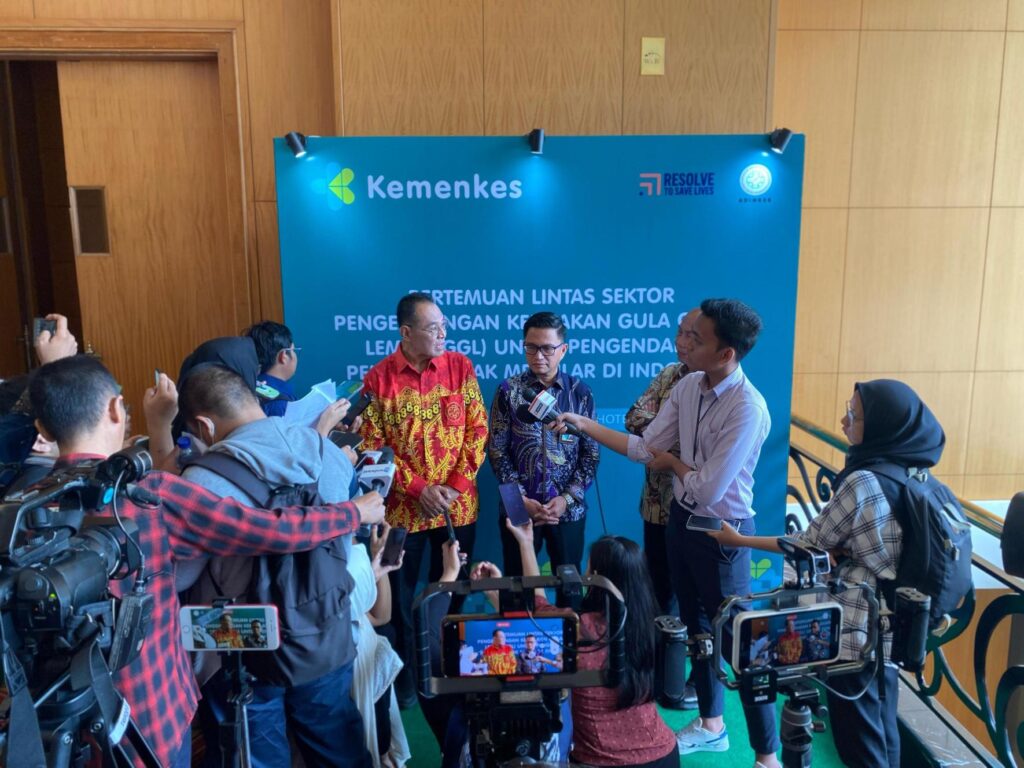
Indonesia gears up to build a comprehensive food policy that eliminates harmful trans fat and reduces excess sodium to reduce a high burden of high blood pressure.
Fourth time a charm?—How to make the UN high-level meeting on noncommunicable diseases effective
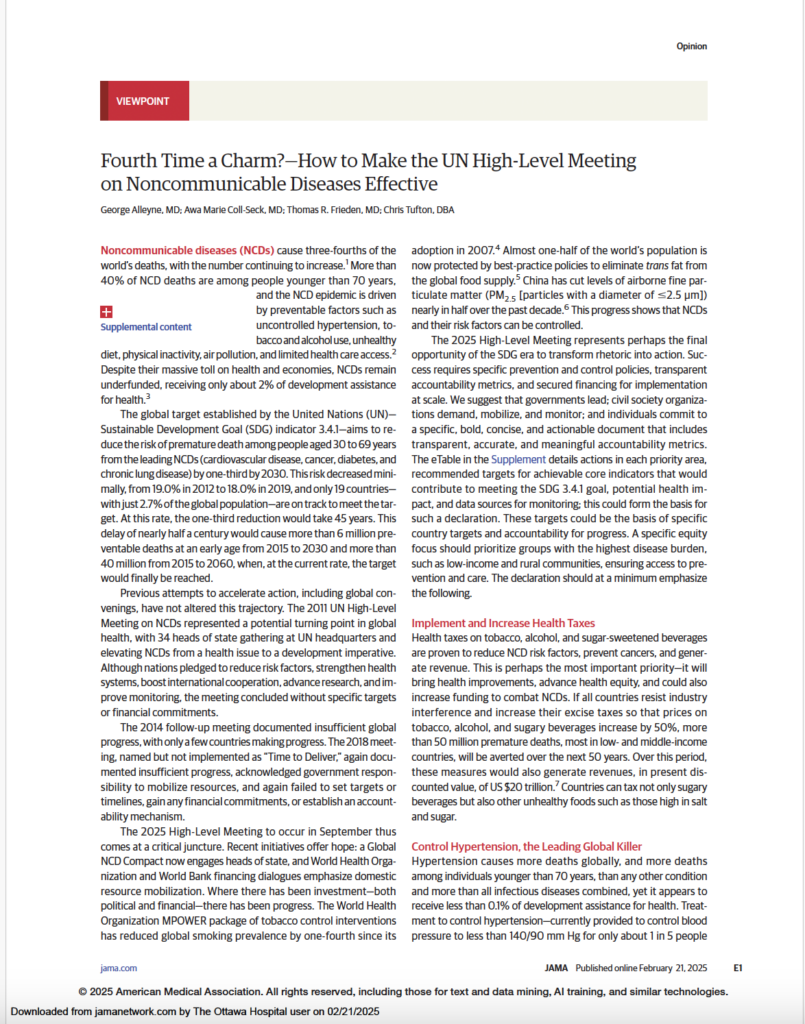
In a new article published in the Journal of the American Medical Association (JAMA), Dr. Tom Frieden and colleagues call for a focused strategy and more investment to address the world’s leading killer diseases. The article outlines specific, effective, and measurable steps countries can take to make progress and increase the chances that the upcoming […]
New article in JAMA calls for less rhetoric and more action before, during, and after 2025 UN High-Level Meeting on noncommunicable diseases
In JAMA, Dr. Tom Frieden and colleagues call for focused strategy and more investment to address NCDs.
Trans fat elimination: Maximizing lives saved through policy implementation and enforcement

Once a best-practice trans fat elimination policy is passed and adopted, it must be implemented and enforced. This advocacy document developed by Resolve to Save Lives serves as a guide for the monitoring and enforcement of best practice policies that eliminate industrially produced trans fat from a country’s food supply.
Developing and implementing a trans fat elimination policy: A 7-step guide for policymakers
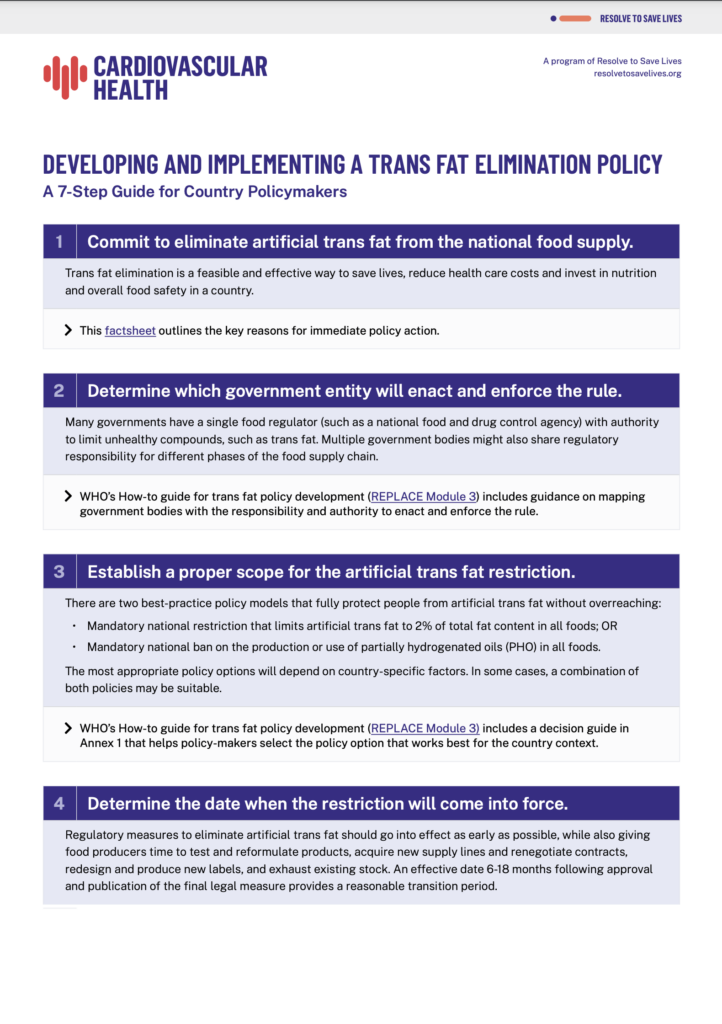
Fact sheet from Resolve to Save Lives with practical steps for countries to develop and implement best practice trans fat elimination policies
Training lab techs to keep toxic trans fat out of Nigeria’s food

To effectively ban trans fat and enforce compliance, lab tachs need training on simple protocols.
WHO recommends lower-sodium, potassium-enriched salt in place of table salt
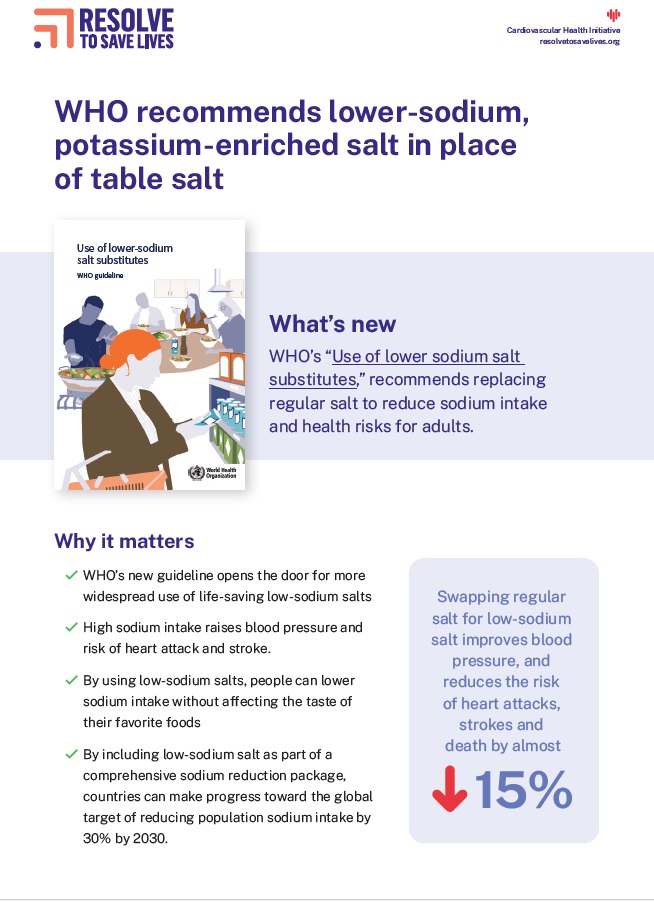
Infographic from Resolve to Save Lives highlighting key points from “Use of lower-sodium salt substitutes: WHO guideline,” why it matters, and what it means for countries.
The George Institute for Global Health and Resolve to Save Lives welcome WHO’s recommendation to replace regular table salt with lower-sodium salt substitutes
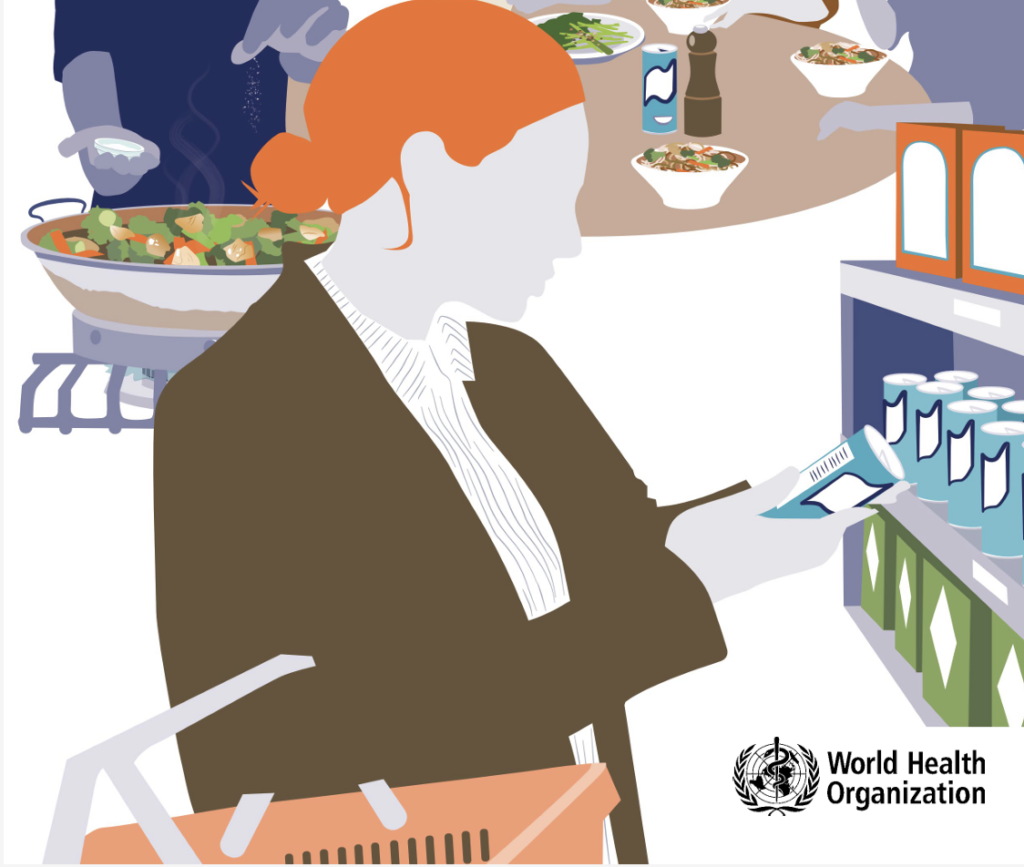
Resolve to Save Lives and The George Institute for Global Health strongly support WHO new recommendation to to replace regular table salt with lower-sodium salt substitutes.
User Guide for RTSL’s Global Nutrition Database

Detailed user guide to supplement use of Resolve to Save Lives’ Global Nutrition Database for Packaged Foods, an online, open access, centralized platform for category level packaged food data that policy advocates and decisionmakers can reference when developing food policies or tracking country progress.
Tools for the Assessment of the Public Food Procurement and Policy Landscape
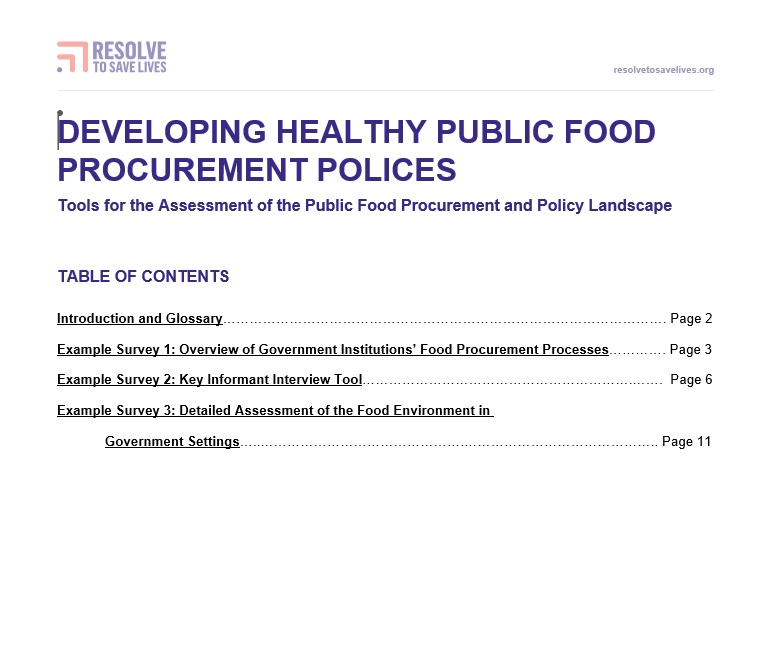
A comprehensive assessment of the existing food procurement landscape is crucial to the development, implementation, and evaluation of a healthy public food procurement policy that is relevant to the specific context. Resolve to Save Lives has developed example surveys for capturing key aspects of the food procurement and policy landscape. These surveys should be adapted […]
For WSJ, our President and CEO Dr. Tom Frieden talks nutrition in the U.S. and beyond

What should the new U.S. administration do to change American diets for the better?
Lower sodium, longer lives

Sodium reduction is the single most important dietary intervention for improving heart health and saving lives. Learn more in this resource developed by Resolve to Save Lives.
Resolve to Save Lives’ new global guidelines for healthy public food procurement

Setting healthy nutrition standards for food served in schools, public hospitals, childcare facilities and government workplaces is a powerful strategy for saving lives.
Meet GIFNA – WHO’s upgraded nutrition policy database
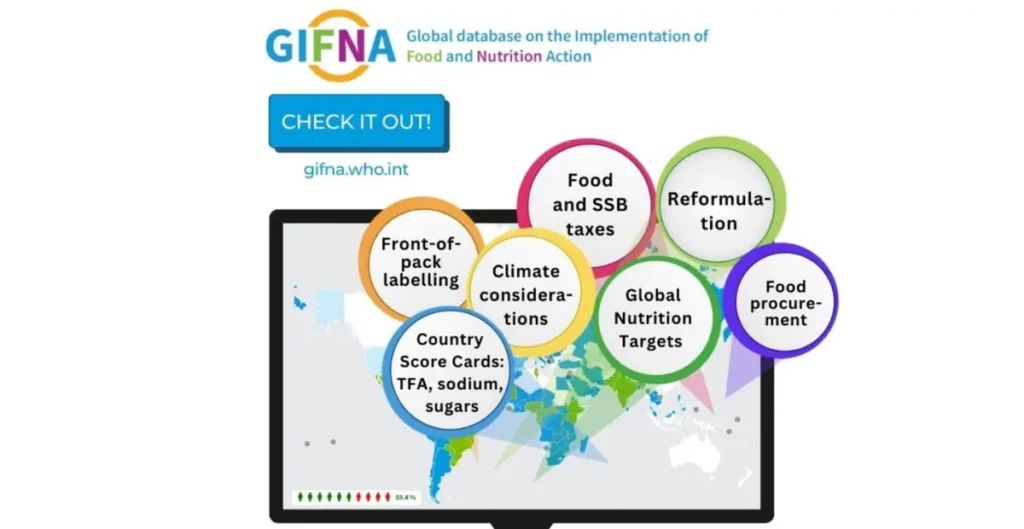
Nutrition policymakers and advocates can use WHO’s upgraded policy database to improve food environments for all.
Designing Front-of-Package Labels to Inform Consumers and Encourage Healthier Food Choices in Bangladesh: A Qualitative Study

This study, co-authored by the RTSL nutrition team, uses focus groups of consumers in Bangladesh to better understand purchasing decisions and effectiveness of nutrition labels. Chief food purchase concerns include that a food has sufficient beneficial nutrients, is free from germs or toxins, and does not contain high levels of nutrients of concern. Results suggest […]
Colombia protects 52 million people from toxic trans fat
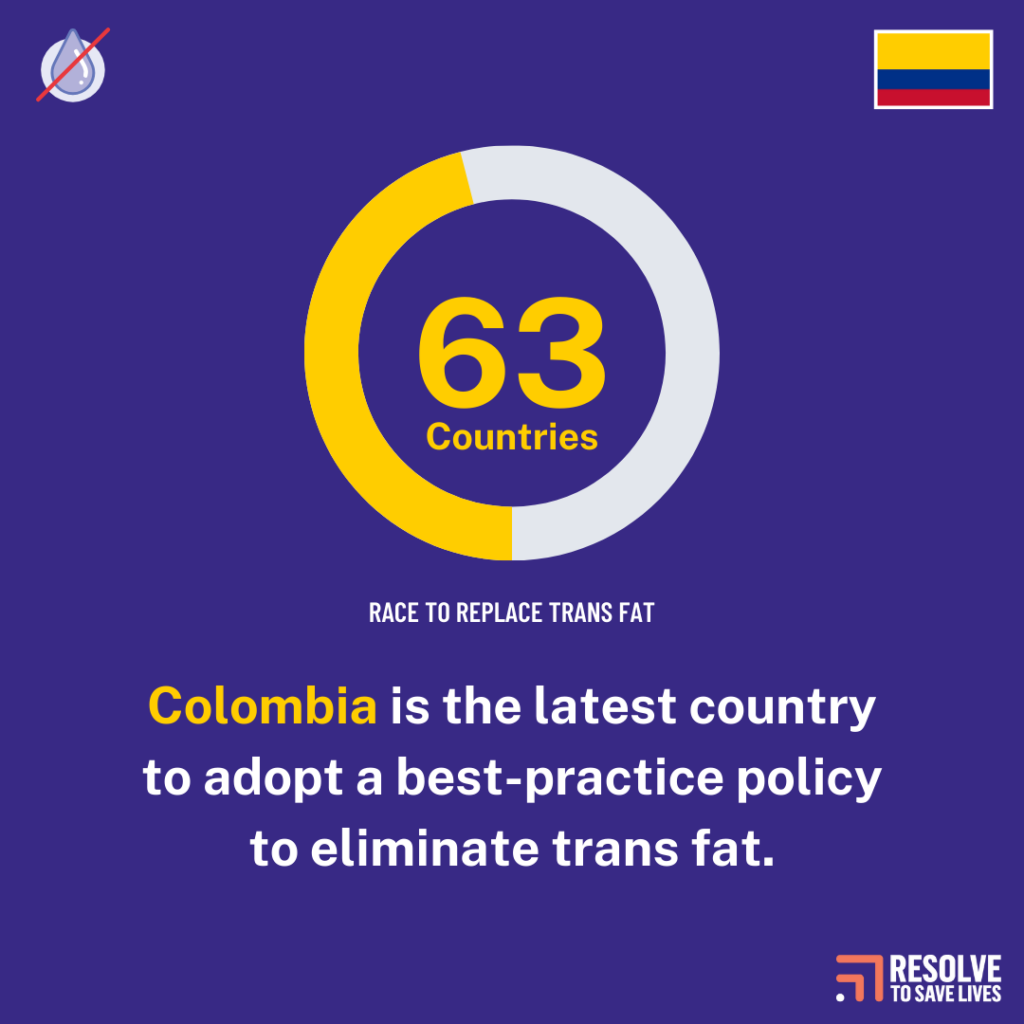
Colombia passes a new policy to protect its people from toxic trans fat, joining global effort for elimination by 2025.
Global overview of government-endorsed nutrition labeling policies of packaged foods: a document review

Clear and accurate nutrition labeling on food products is an important way for consumers to understand what’s in the foods they buy. This new comprehensive review in Frontiers led by partners at the National Heart Foundation of Bangladesh and co-authored by Resolve to Save Lives shows that governments are scaling up action to help consumers make informed food […]
RTSL trans fat experts speak out
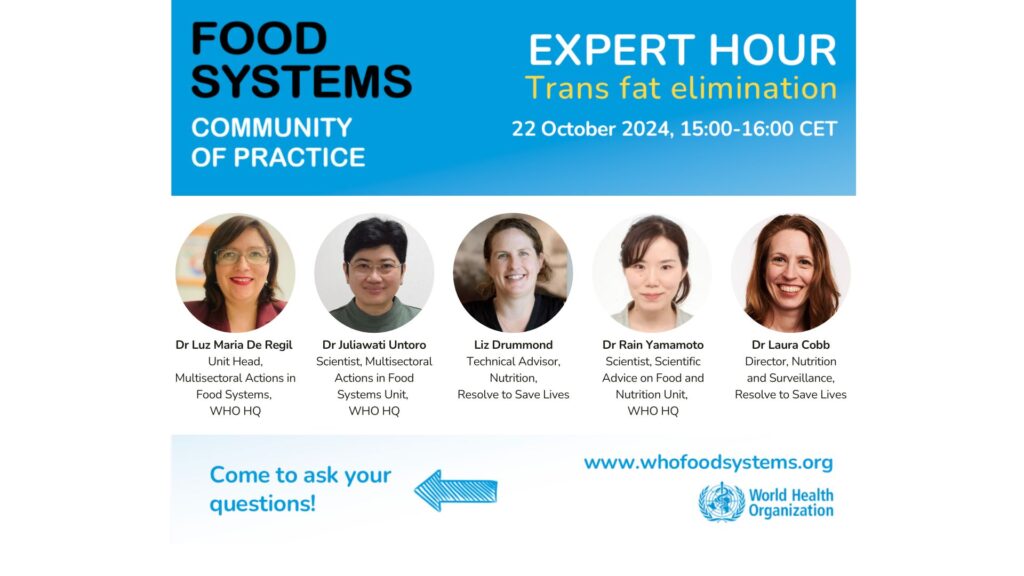
Trans fat elimination webinar features experts from Resolve to Save Lives and outlines steps to remove this harmful food additive.
Guidelines for Media Planning

A resource outlining Vital Strategies’ Breakthrough model for planning strategic communication campaigns to achieve measurable public health outcomes.
FOPWL regulations around the globe
Overview of front-of-package warning labelling policies around the world developed by GHAI
Countering Industry Interference: Food Industry Watch Resources

Centralized location for industry alerts, policy briefs, and reports to help organizations stay up-to-date on the ultra-processed food and beverage industry.
Reducing Demand for Unhealthy Food: Resources

Collection of advocacy resources on various health food policies such as Front-of-Package Warning Labels, Marketing Restrictions, Sugar-Sweetened Beverage Taxes, and Trans fatty Acids Eliminations.
Advocacy Action Guide Four Phases to Health Policy Success

Guide developed by the Global Health Advocacy Incubator (GHAI) to provide public health advocates with strategies, case studies, and lessons from over 40 countries to plan, organize, and implement effective advocacy for health policy outcomes.